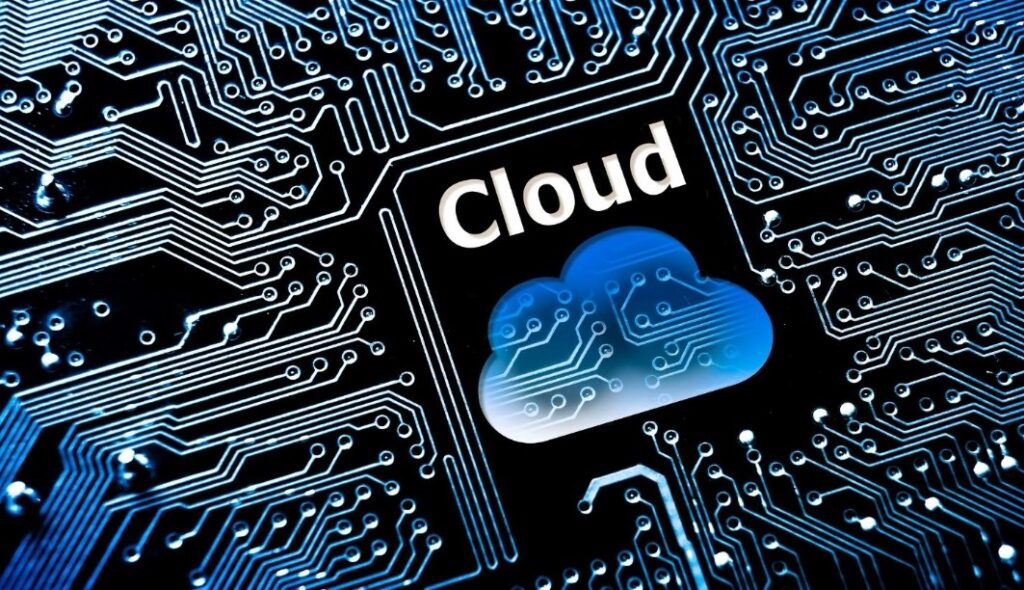Cloud computing has revolutionized the way businesses and individuals manage and utilize their digital resources. By leveraging cloud technology, users can access powerful computing resources, scalable storage, and advanced services without the need for physical infrastructure. In this article, we’ll explore the top cloud computing services available in 2024, detailing their features, benefits, and how to choose the best option for your needs. We’ll also provide real-world examples, comparisons, and transactional information to help you make an informed decision.
What is Cloud Computing?

Cloud computing refers to the delivery of computing services—including servers, storage, databases, networking, software, and analytics—over the internet (“the cloud”). It allows users to access and manage their resources remotely, providing flexibility, scalability, and cost-efficiency.
Benefits of Cloud Computing
Cloud computing has revolutionized the way businesses and individuals handle computing resources. By leveraging remote servers hosted on the internet, cloud computing offers a range of advantages that traditional on-premises systems cannot match. This article explores the significant benefits of cloud computing, highlighting why it is a pivotal technology for modern organizations and individuals.
Cost Efficiency
1. Reduced Capital Expenditure
One of the most notable benefits of cloud computing is its reduction in capital expenditure. Instead of investing heavily in physical hardware and infrastructure, organizations can utilize cloud services on a pay-as-you-go basis. This shift from capital expenses to operational expenses helps companies manage their budgets more effectively and avoid large upfront costs.
2. Lower Maintenance Costs
Cloud computing also reduces maintenance costs associated with managing physical servers and infrastructure. Cloud providers handle hardware updates, security patches, and system upgrades, freeing organizations from these responsibilities. This allows businesses to focus on their core activities without worrying about IT maintenance.
Scalability and Flexibility
1. On-Demand Resource Allocation
Cloud computing offers on-demand resource allocation, allowing businesses to scale their computing resources up or down based on their needs. This flexibility ensures that organizations can accommodate fluctuating workloads and avoid over-provisioning, optimizing their resource usage and costs.
2. Rapid Deployment and Integration
With cloud services, new applications and services can be deployed rapidly and easily. This agility accelerates time-to-market for new products and services, enabling businesses to respond quickly to market changes and customer demands.
Accessibility and Collaboration
1. Global Access
Cloud computing provides global access to applications and data from any location with an internet connection. This accessibility supports remote work and collaboration, allowing teams to work together seamlessly regardless of their physical location.
2. Enhanced Collaboration Tools
Many cloud platforms offer integrated collaboration tools that facilitate real-time communication, file sharing, and project management. These tools enhance productivity by enabling teams to work together more efficiently and stay aligned on project goals.
Security and Reliability
1. Advanced Security Features
Cloud providers implement advanced security measures to protect data and applications. These measures include encryption, multi-factor authentication, and regular security audits. By leveraging these features, businesses can benefit from robust security without needing to invest in extensive in-house security infrastructure.
2. High Availability and Disaster Recovery
Cloud computing offers high availability and disaster recovery solutions that ensure business continuity. Cloud providers typically have multiple data centers with redundancy and backup capabilities, reducing the risk of data loss and minimizing downtime in case of system failures or disasters.
Performance and Efficiency
1. Optimized Computing Power
Cloud computing delivers optimized computing power through virtualization and resource pooling. This means that businesses can access high-performance computing resources without needing to invest in expensive hardware, improving the efficiency of their IT operations.
2. Energy Efficiency
By consolidating resources in data centers, cloud computing promotes energy efficiency. Cloud providers implement energy-efficient technologies and practices, which help reduce the overall environmental impact compared to traditional on-premises systems.
Innovation and Agility
1. Access to Cutting-Edge Technology
Cloud computing provides access to cutting-edge technologies and services, such as artificial intelligence, machine learning, and big data analytics. Organizations can leverage these advanced tools to innovate and gain a competitive edge without needing to invest in specialized hardware or software.
2. Faster Innovation Cycles
The flexibility and scalability of cloud computing enable faster innovation cycles. Businesses can experiment with new ideas, deploy prototypes, and iterate quickly based on feedback, accelerating their ability to bring innovative solutions to market.
Cost-Effective Scalability
1. Pay-as-You-Go Model
Cloud computing operates on a pay-as-you-go model, where businesses only pay for the resources they use. This cost-effective approach eliminates the need for large capital investments and allows organizations to manage their IT expenses more efficiently.
2. Efficient Resource Utilization
Cloud platforms enable efficient resource utilization by dynamically allocating resources based on demand. This means that businesses can optimize their computing resources and reduce waste, leading to cost savings and improved overall efficiency.
Cloud computing offers a multitude of benefits, including cost efficiency, scalability, flexibility, accessibility, and enhanced security. By leveraging cloud services, organizations and individuals can optimize their IT operations, support remote work and collaboration, and access advanced technologies with ease. As cloud computing continues to evolve, its advantages will only grow, making it an essential component of modern technology strategies.
Top 5 Cloud Computing Services in 2024

1. Amazon Web Services (AWS)
Key Features:
- Free Tier: Yes, with limited resources
- Storage Options: S3, EBS, Glacier
- Compute Options: EC2, Lambda
- Pros: Extensive range of services, global infrastructure
- Cons: Complex pricing, steep learning curve
Benefits:
- Comprehensive Services: Offers a wide range of cloud services, from computing power to storage and machine learning.
- Global Reach: AWS operates in numerous regions and availability zones worldwide.
- Scalability: Easily scale resources to meet changing demands with services like EC2 and Auto Scaling.
How to Use:
- Where: Access AWS via AWS’s website
- Cost: Free tier available; pay-as-you-go pricing for additional services
2. Microsoft Azure
Key Features:
- Free Tier: Yes, with limited resources
- Storage Options: Blob Storage, Disk Storage
- Compute Options: Virtual Machines, Azure Functions
- Pros: Integration with Microsoft products, strong enterprise support
- Cons: Can be expensive, complex management
Benefits:
- Seamless Integration: Integrates smoothly with Microsoft Office, Windows Server, and other Microsoft products.
- Hybrid Capabilities: Offers robust solutions for hybrid cloud environments.
- Advanced Services: Includes AI, machine learning, and IoT services.
How to Use:
- Where: Access Azure via Microsoft Azure’s website
- Cost: Free tier available; pay-as-you-go pricing for additional services
3. Google Cloud Platform (GCP)
Key Features:
- Free Tier: Yes, with limited resources
- Storage Options: Cloud Storage, Persistent Disk
- Compute Options: Compute Engine, Cloud Functions
- Pros: Strong analytics and machine learning capabilities, competitive pricing
- Cons: Smaller ecosystem compared to AWS and Azure
Benefits:
- Data Analytics: Leverage powerful data analytics and machine learning tools like BigQuery and TensorFlow.
- Competitive Pricing: Offers flexible and cost-effective pricing models.
- Global Network: Utilizes Google’s high-performance global network infrastructure.
How to Use:
- Where: Access GCP via Google Cloud’s website
- Cost: Free tier available; pay-as-you-go pricing for additional services
4. IBM Cloud
Key Features:
- Free Tier: Yes, with limited resources
- Storage Options: Object Storage, Block Storage
- Compute Options: Virtual Servers, Kubernetes Service
- Pros: Strong focus on enterprise solutions, hybrid cloud capabilities
- Cons: Interface can be less intuitive, fewer third-party integrations
Benefits:
- Enterprise Focus: Provides robust solutions tailored for large enterprises and complex environments.
- Hybrid Cloud: Supports hybrid cloud environments with IBM’s OpenShift and Kubernetes solutions.
- AI and Blockchain: Includes advanced services for AI and blockchain technologies.
How to Use:
- Where: Access IBM Cloud via IBM Cloud’s website
- Cost: Free tier available; pay-as-you-go pricing for additional services
5. Oracle Cloud
Key Features:
- Free Tier: Yes, with limited resources
- Storage Options: Object Storage, Block Storage
- Compute Options: Compute Instances, Autonomous Database
- Pros: Strong database capabilities, integrated cloud applications
- Cons: Limited market presence compared to AWS and Azure
Benefits:
- Database Expertise: Offers advanced database solutions like Oracle Autonomous Database.
- Integrated Applications: Provides integrated applications for business processes and analytics.
- Cost Efficiency: Competitive pricing and flexible billing options.
How to Use:
- Where: Access Oracle Cloud via Oracle Cloud’s website
- Cost: Free tier available; pay-as-you-go pricing for additional services
Comparison Table
| Cloud Provider | Use Case | Pros | Cons | Price | Features |
|---|---|---|---|---|---|
| Amazon Web Services (AWS) | General cloud services, large-scale projects | Extensive range of services, global infrastructure | Complex pricing, steep learning curve | Free tier available; pay-as-you-go pricing | EC2, S3, Lambda, global data centers |
| Microsoft Azure | Integration with Microsoft products, enterprise solutions | Seamless Microsoft integration, hybrid capabilities | Can be expensive, complex management | Free tier available; pay-as-you-go pricing | Virtual Machines, Azure Functions, AI services |
| Google Cloud Platform (GCP) | Data analytics, machine learning | Powerful analytics and ML tools, competitive pricing | Smaller ecosystem compared to AWS and Azure | Free tier available; pay-as-you-go pricing | BigQuery, TensorFlow, global network |
| IBM Cloud | Enterprise solutions, hybrid cloud | Strong enterprise focus, hybrid capabilities | Less intuitive interface, fewer integrations | Free tier available; pay-as-you-go pricing | Virtual Servers, Kubernetes, AI and blockchain |
| Oracle Cloud | Database solutions, business applications | Advanced database solutions, integrated applications | Limited market presence | Free tier available; pay-as-you-go pricing | Autonomous Database, cloud applications |
How to Choose the Right Cloud Computing Service

Choosing the right cloud computing service depends on several factors:
- Business Needs: Identify your specific needs, such as computing power, storage, and data analytics.
- Budget: Compare pricing models and determine which service offers the best value for your requirements.
- Integration: Consider how well the service integrates with your existing tools and systems.
- Scalability: Ensure the service can scale with your business growth and changing needs.
How to Buy and Where to Buy
- Where to Buy: Access and sign up for cloud computing services directly through their websites.
- How to Buy: Follow the sign-up process on the provider’s website, choose the plan that best fits your needs, and start using the service.
- Cost: Prices vary based on the provider and the services you choose. Most offer free tiers with the option to upgrade to paid plans.
Use Cases
Startups and Small Businesses
For startups and small businesses, cloud computing offers cost-effective solutions for managing IT infrastructure, allowing them to focus on their core activities without worrying about hardware and maintenance.
Large Enterprises
Large enterprises benefit from cloud computing by leveraging scalable resources, advanced analytics, and hybrid cloud capabilities to manage complex and large-scale IT environments.
Developers and Data Scientists
Developers and data scientists use cloud computing services for developing, testing, and deploying applications, as well as for performing complex data analysis and machine learning tasks.
FAQs
1. What is the difference between public, private, and hybrid clouds?
- Public Cloud: Services offered over the public internet and shared with other organizations.
- Private Cloud: Services dedicated to a single organization with enhanced security and control.
- Hybrid Cloud: A combination of public and private clouds, providing flexibility and optimized workloads.
2. How do I calculate cloud computing costs?
Most cloud providers offer cost calculators on their websites to estimate costs based on your usage. Review pricing details and consider your anticipated resource needs to get an accurate estimate.
3. Are cloud computing services secure?
Reputable cloud providers implement robust security measures, including encryption, access controls, and compliance certifications. Always review the provider’s security policies and features.
4. Can I migrate my existing applications to the cloud?
Yes, most cloud providers offer migration tools and support to help you transfer your existing applications and data to the cloud.
5. What is cloud scalability?
Cloud scalability refers to the ability to easily increase or decrease computing resources based on demand. This flexibility helps ensure you have the right amount of resources for your needs without over-provisioning.
Choosing the right cloud computing service can greatly enhance your operational efficiency, scalability, and cost-effectiveness. Explore the top options, compare their benefits, and select the service that best meets your needs. Start optimizing your IT infrastructure with cloud computing today!
